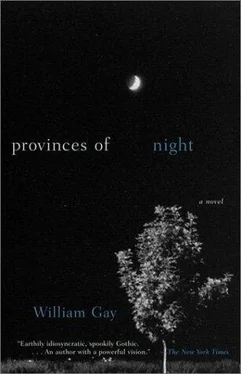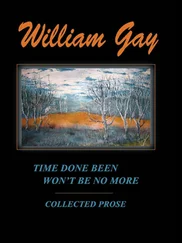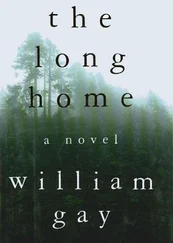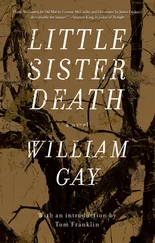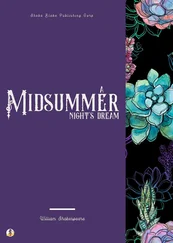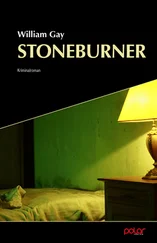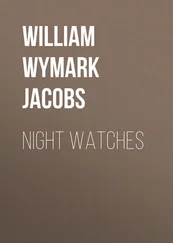For this place as well was steeped in old violence. Folks called this place haunted, felt the emanations of an unspeakable act moving outward like ripples on water. Long ago, he did not know the year, a sharecropper named Parnell had come in from the fields after laying his crops by. Perhaps he had drunk at the spring, washed his face in the cold water. He had come into this shaded cabin and at some uncharted point had killed his wife and three children then turned the shotgun on himself.
Young Fleming Bloodworth sat for a time on the top stairstep trying to divine answers to this old lost mystery, the inevitable why of it, the event that permitted a previously forbidden thought, the impulse that transformed thought back to deed. In the charged gloom he heard the rattle of trace chains, a horse’s hooves click on stone, heavy footsteps on the porch, the soft laughter of children at play.
He descended the staircase and went with some haste into the hot white light. He hurried through walls of flickering greenery. He had begun to fear for his sanity, felt that madness tracked him like a homeless dog, needed only a kind word or gesture to throw its lot with him forever.
It was a season of violent storms. He would be jarred out of sleep by an enormous concussion of thunder, open his eyes to a room of photoelectric light so intense all the color had been drained away. The thunder would go rolling across the bottomland in diminishing intensity, and wrapped in a blanket he’d go onto the porch and watch the storm blowing in from the southwest, the dome of light faulted by lightning so that the wild unfolding landscape of agitated trees and wet black stone was shuttered light to dark and back again like a series of snapshots that bore no relation one to the other. The wind would be stiff and cool on his face and in his hair and before it the pale undersides of maple leaves ran like quicksilver. Save for the wind in the trees and the thunder the night would be silent, holding its breath. The wind bore sticks and chaff and stripped leaves, the feel and smell of rain and ozone. The lightning wrought everything in bold relief, brought images leaping out of the dark in surreal clarity, and in its glare he would see like some release from tension the first wave of rain approaching, swinging slant and silver in the light, distorted by the wind, and behind it Hixson’s house and the hills that framed it blurring then vanishing. The rain would be in the trees now and the first heavy drops striking the roof like stones.

FLEMING WAS passing the Snowwhite Cafe when a voice hailed him. He halted in midstep and turned. An English teacher named Kenneth Spivey was holding the door open and motioning at him with his crippled arm.
Come in and drink a Coke with me.
I need to get on, Fleming said. I’m late already.
Late for what? Spivey asked.
In fact Fleming was late for nothing and bound nowhere in particular and he figured Spivey knew it. Trapped, he crossed the sidewalk to the cafe and went in. I guess I have time to drink a Coke, he said.
Spivey was sitting in a booth by the plateglass window and Fleming seated himself across from him with the width of the red Formica table between them. He sat crouched on the edge of the seat like one who only has a moment and must soon be off.
A waitress in a white uniform stood at his elbow. Let me have a lemon Coke, Fleming said, and she wrote it on a pad.
Don’t you speak anymore, Fleming?
He looked up. A girl he remembered from school and for a dizzy moment no name came to mind. I didn’t even know you worked here, he said.
Just on the weekends. I’m still in school.
Fleming doesn’t know us anymore, Spivey said, leaning to his cherry Coke, his girlish mouth pursed, like a leech or a slug clamped about the straw. He’s gone on to other things.
When the Coke came it was in a tall glass of shaved ice with a wedge of lemon floating atop. He sat sipping it and studying the scratched tabletop. B.C. loves E.M. Elise loves Warren Bloodworth.
Have you dropped out of school, Fleming? Spivey asked.
Well, I don’t know. I guess not. I just haven’t been going lately.
No. Not for quite a while. It would be a shame if you did drop out. It’s always a shame when a young person gives up but even more so when it’s you. You’re the most promising student I ever had. I had high hopes for you, and I would hate to lose you.
Fleming was absentmindedly nibbling the slice of lemon. I don’t know anything about any of that, he said.
You don’t have to know it. That’s my job. I’m the teacher. What do you plan to do? Somehow I don’t see you working in the shoe factory. Sharecropping. Perhaps you want to offbear at the sawmill and go home to a little country wife and a bunch of little Flemings running around.
He was leant across the table with his protuberant brown eyes fixed upon Bloodworth. Fleming was always uncomfortable in his presence and he was acutely so now. The soft bulging eyes were leaning an almost unbearable weight on him. Spivey’s eyes were naked peepholes into his soul and whatever emotion he felt, pain, anger, frustration, was there for the world to read. This was knowledge Fleming had no use for and he looked away. Across the street in front of the poolroom a man and a woman were arguing in silence. Their mouths moved but Fleming could hear no sound. They spoke in gestures like angry mimes. Finally the man gave a contemptuous gesture of dismissal and walked back through the poolroom door. The woman stood there for a time and then she went on down the street.
What did you think of that book I gave you?
It’s the best book I ever read.
There’s another book, a sort of sequel to it called Of Time and the River. It continues the story of Eugene Gant. There’s a very powerful scene where old man Gant dies. Would you like me to bring it to you?
Well. I’d like to read it. I could pick it up somewhere.
No, I’d like to bring it. I have a lot of books and books are better if you can share them.
Spivey’s withered arm looked like the arm of a deformed child, the drawn fingers the talons of some grotesque sort of bird. The tiny hand fished in a shirt pocket and drew out a pack of Camels as if it were performing a trick it had been trained to do. Spivey took the cigarettes with his good hand and tipped one out and placed it between his meaty lips. By this time the withered hand had produced a lighter. As he lit the cigarette his eyes were still fixed on Bloodworth.
I’d like to help you, he said. I’m in a position to help you. I know something of the situation you’re in.
The what?
The situation you’re in. Your home life. I’d like to do something about it.
There’s not a damned thing wrong with my home life, Fleming said.
Spivey smiled a sad onecornered smile. His wet eyes looked hurt, bruised. You southerners, he said. I’ve been here for fifteen years and I’ll never understand you.
We do just fine on our own, Fleming said.
I live in this enormous farmhouse down on Catheys Creek. I used to live with my sister but she passed away a few years back and I’m alone in it. I just rattle around that old house. There’s plenty of room. You’d have your own quarters, the use of my library. I know how lonely life can get.
I’m not lonely at all, Fleming said, and suddenly realized that he was speaking the truth.
Perhaps not, Spivey said. You’re so young. You’re so well read I sometimes forget you’re practically a child. I wonder if I was ever that young.
By now Fleming had drained his glass and was standing. He felt like the character in a comic strip who suddenly has an enormous lightbulb appear over his head. The feeling was so intense that he could feel the hot knowledge on his face.
Читать дальше
